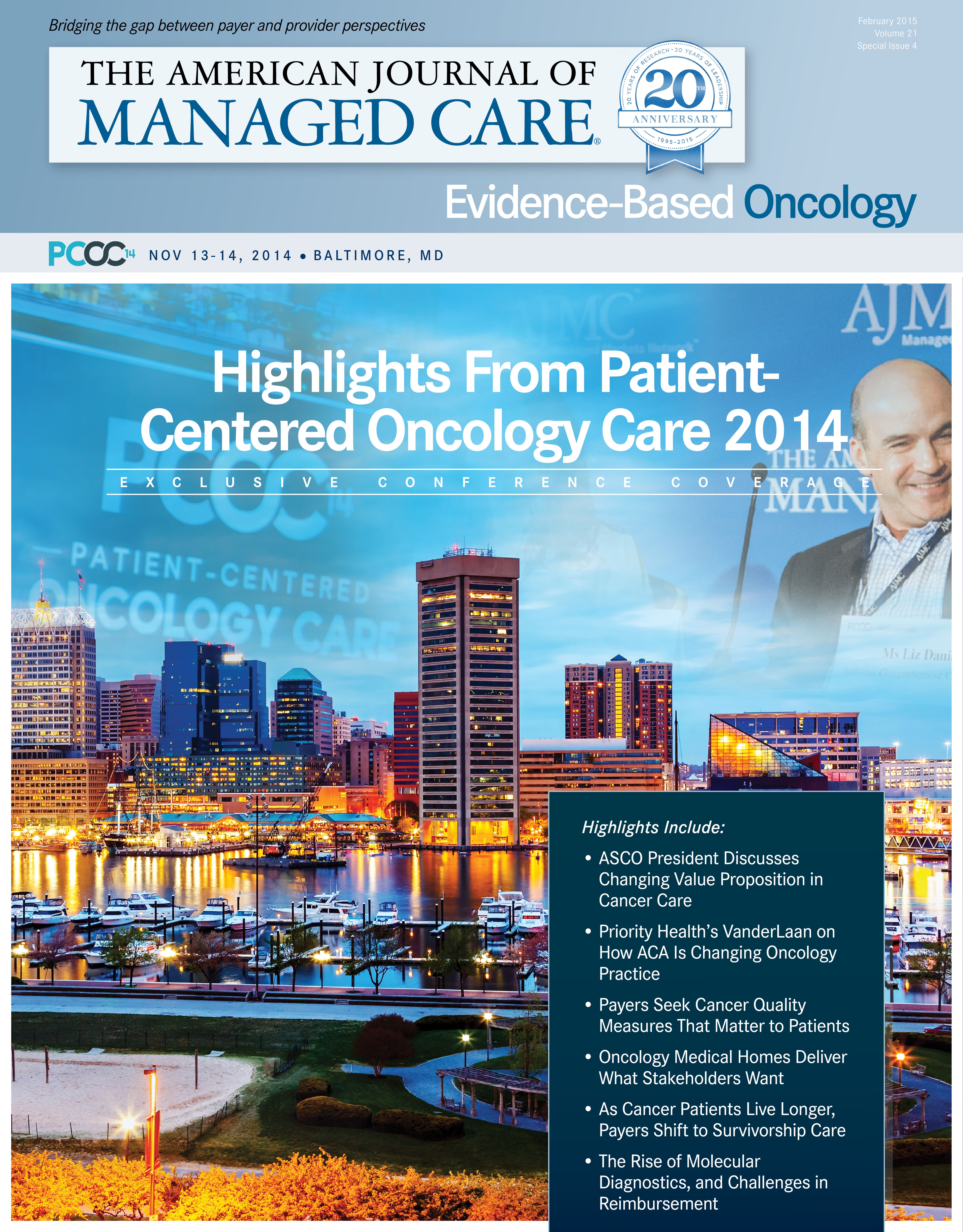- Center on Health Equity & Access
- Clinical
- Health Care Cost
- Health Care Delivery
- Insurance
- Policy
- Technology
- Value-Based Care
Payers Seek Quality Measures That Matter to Patients, Fox Says
Efforts to improve quality in cancer care by creating standards of measurement abound, including the Quality Oncology Practice Initiative (QOPI), launched in 2006 by the American Society of Clinical Oncology (ASCO).1 But although measuring quality with the goal of improving patient care is important, it’s essential for healthcare leaders to grasp what is being measured and to ensure that it actually matter to patients.
That was the message from John Fox, MD, MHA, associate vice president of Medical Affairs at Priority Health, who gave the talk, “Payer Perspectives on the Role and Impact of QOPI Certification.” At the outset, Fox said that healthcare tends to value those things that are easiest to measure, although “They are not necessarily the things that are the most important.”
So which measurements matter? “We have to measure things that are important to patients,” he said, rather than what matters most to providers and payers. Doing this likely means integrating data from sources beyond the doctor’s office or the healthcare system itself, such as death registries that will tell healthcare systems exactly when and where patients died.
The triple aim of increased patient satisfaction, improved population health, and a downward pressure on healthcare costs can be achieved, Fox said. The challenge is that while various parts of
the system may want to work cooperatively, “The imperative today is for each to satisfy our primary stakeholders and not society as a whole.” That challenge has created an upward tick in healthcare spending, in general, and cancer care, in particular, something that ASCO is determined to address.
Fox pointed to a graphic that showed that the amount middle-class Americans are spending on healthcare is simply not sustainable, especially with a diagnosis like cancer. He referenced the 2001 Institute of Medicine (IOM) report, “Crossing the Quality Chasm,”2 which calls for a healthcare delivery system along 6 domains that Fox said are still relevant today: according to the IOM care must be safe, effective, patient-centered, timely, efficient, and equitable.
Fox elaborated on the elements of safety and efficiency in cancer care, defining efficiency as “the absence of waste.” He shared a figure showing how waste in the system contributes to healthcare’s rate of spending continuing to outpace the US gross national product: fraud, along with failures in care delivery, care coordination, and pricing, all contribute, but the biggest problem areas were overtreatment and too much administration. Does any of this matter to patients?
Some of it might, Fox said, noting the example, “overtreatment that patients wouldn’t have wanted had they known differently.” What patients care most about, however, are outcomes. However, most quality care measurements focus on process and structure, not outcomes, he said. He listed the 10 core QOPI quality measures, of which 8 are process measures (See Table), while 2 measure outcomes. Within the IOM framework, 7 involve effectiveness, and 3 concern whether care is patient-centered.
All this might speak to why payers are not yet funding QOPI, he explained. It’s not that QOPI may not be important; Fox said, it’s that payers don’t care as much about process or structure unless there is a clear correlation with how it affects patient outcomes. QOPI, he said, has 200 measures, and Fox said it can be difficult to see at first how many of these, which are process measures, translate to things that bring value to patients. Fox went through numerous other examples, including research that highlighted spectacular disconnects between what he called “box-checking” by physicians and what patients understood to be happening in their care. By contrast, other research involving practices that received Patient-Centered Medical Home (PCMH) designation form the National Committee on Quality Assurance reported a 5% reduction in total Medicare payments compared with their nonaccredited counterparts, with 62% of the decline due to a reduction in payments to acute care hospitals.
Fox sees hope for PCMHs, but he also warned that the conflicting standards of measurement being put forth by QOPI, the Commission on Cancer, the Community Oncology Alliance, and CMS’ Center for Medicare and Medicaid Innovation could create confusion among oncologists. “We have to measure things that matter to patients,” he said. “Not everyone can measure everything—it takes collaboration between oncologists and payers. We will get farther, faster, if we can agree on a common set of metrics.”

Quality of Life: The Pending Outcome in Idiopathic Pulmonary Fibrosis
February 6th 2026Because evidence gaps in idiopathic pulmonary fibrosis research hinder demonstration of antifibrotic therapies’ impact on patient quality of life (QOL), integrating validated health-related QOL measures into trials is urgently needed.
Read More
Exploring Racial, Ethnic Disparities in Cancer Care Prior Authorization Decisions
October 24th 2024On this episode of Managed Care Cast, we're talking with the author of a study published in the October 2024 issue of The American Journal of Managed Care® that explored prior authorization decisions in cancer care by race and ethnicity for commercially insured patients.
Listen
Building Trust: Public Priorities for Health Care AI Labeling
January 27th 2026A Michigan-based deliberative study found strong public support for patient-informed artificial intelligence (AI) labeling in health care, emphasizing transparency, privacy, equity, and safety to build trust.
Read More

